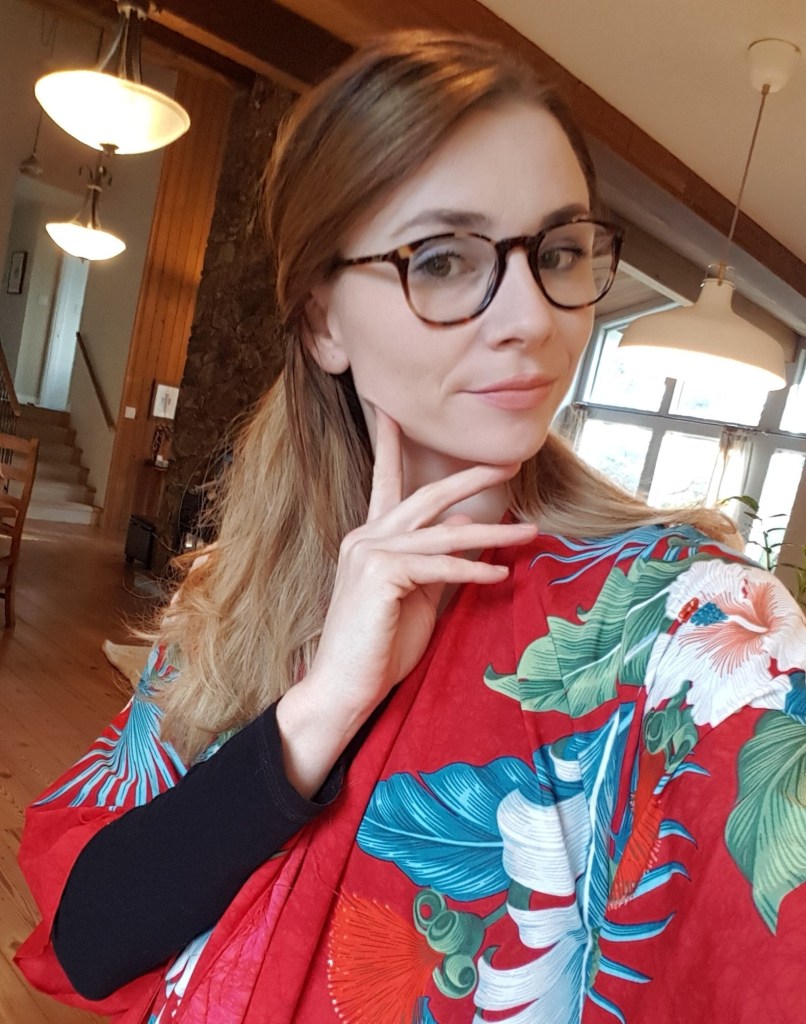By Carlie Blume
@carlie_blume
Two months ago when I first had the idea to write an essay on the classic Rodgers and Hammerstein film The Sound of Music, I really had no idea what state the world would be in by the time it was published.
My initial idea was to pay homage to a film that, in March, had just celebrated its 55th anniversary. A film so ubiquitously treasured and popular that despite a bit of collected dust, has still managed to sustain an almost cult-like following. But I will confess that my initial relationship to the film wasn’t necessarily one rooted in love at first sight. When I watched it for the first time as a kid, I remember thinking how anodyne and horrifyingly corny it was, to the point where I almost felt embarrassed watching it in the presence of others. Recently, my daughter showed interest in watching the movie with me one afternoon when she was home from school with the flu. To my surprise, it turned out to be a completely different movie experience than the one I had as a kid. I found myself as an adult, almost fifteen years later, re-watching the film—especially in this new context of social distancing, record-breaking unemployment, glaring inequality and a rising death rate—tuning into certain scenes, character interactions and song lyrics in a way I hadn’t been before.
At the beginning, we are introduced to Julie Andrews’s character Maria and her life at Nonnberg Abbey as a postulate. Throughout the movie, the abbey acts as a symbol of shelter, a sort of launch pad for the life Maria was always meant to live. Watching the way the Mother Abbess tenderly handles Maria’s struggle with the ultimate decision of continuing on to take her vows (her patience!) filled me with an unrecognizable warmth I had not ever associated with Catholicism before. And, once she leaves the abbey to try a stint as Governess for the von Trapp family, her song “I Have Confidence” sets the stage for the bright optimism and enduring moral compass that guides this film into its (literal) ascension at the end.
After almost an entire month of being housebound myself with two kids in constant need of connection, home schooling, attention and reassurance, it’s hard not to feel the hot sting of emotion build in my throat as the floating silk of Julie Andrews’s voice assures me that “everything will turn out fine.”
Even as the movie veers into the love story between Maria and the very dreamy Captain von Trapp (I was clearly too busy looking at Jonathan Taylor Thomas as a kid to see this), I begin to notice the depth of the love they fall into. The “Something Good” scene in the gazebo is so intimate and budding in its vulnerability that at some parts I find myself turning away, even feeling like a voyeur as I watch these two people inch their way through the first moments of declared love.
But ultimately the part that struck me the hardest was toward the end when the family performs at the Salzburg music festival. Here, Captain von Trapp sings a softer, acquiesced, more broken down version of Edelweiss—a song, commonly mistaken as an Austrian folk song, but was in fact written by Rodgers and Hammerstein for the film. It’s almost hard to believe that the song isn’t woven into the fabric of Austria. It is truly a perfect piece of music. Even when we first hear it in the middle of the film, in the scene where Captain von Trapp plays the guitar for his children, we are introduced to it as a love song, a love between man and music and then music and family.
Which brings us back to the music festival, where Edelweiss acts as a lightning rod of preemptive nostalgia, and soft defiance that almost serves as witness to a man as he watches his country succumb to a dystopic fate of fascism and political dissent. The look on his face as he scans the audience, his voice cracking through the amphitheatre is enough to shatter even the most stoic of viewers. It’s the emotional crux of the film and a moment that—unlike the gazebo scene—dares you not to look away. There is something so painfully relatable in that moment. For the last few years, we have watched as white nationalism, racism, anti-science movements and just plain ignorance have slowly burned into a blazing inferno, spreading across nations not unlike the virus. The specific sadness of watching our world, a place that once seemed so familiar and suddenly now so alien, is an emotion I know many can relate to.
And as we all exist in this liminal space and wait out what feels like the ultimate storm, I watch the von Trapp family retreat into the bosom of the alps, heeding the loving advice of Mother Abbess to climb every mountain. I take comfort in the thought that we are all in a slow, eventual climb to safety and that time, paired with the recommended measures and consideration toward one another will be our own exit strategy. And like the Edelweiss flower, famed for its ability to withstand harsh alpine winters, we will endure. We have to.

Carlie Blume is a writer of fiction and poetry. Her writing centres on women’s issues, motherhood, mental health and the sexual politics within relationships and marriage. She loves crisp autumn evenings, Yacht Rock and Murder She Wrote.




